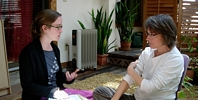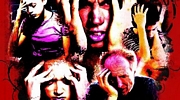Mental health organizations are also involved in the cultural discussions. For example, the American Psychological Association (APA) recently weighed in on the two topics of marriage and adoption, with the Council Representatives voting in favor of policy statements that support gay marriage and homosexual adoption.
The leadership of the American Association of Christian Counselors (AACC) felt it important that our organization consider the topic of homosexuality and offer some guidance for mental health professionals who are working from a distinctively Christian perspective.
Tim Clinton and George Ohlschlager initiated the Task Force on Homosexuality last year. They asked us both to serve as co-chairs. Since that time, the task force has added a number of members who represent the Christian community and a variety of mental health disciplines.
Mission & Purpose
The AACC Task Force has been asked to consider four authoritative foundations as it considers the topic of homosexuality.
The first foundation is the Bible and historic Christian teaching on human sexuality. What does Scripture say about homosexuality? More broadly, what are the positive teachings about human sexuality that are taught in Scripture and have implications for so many facets of human sexuality, including sexual identity and same-sex behavior? Our desire is to provide a context for understanding Scripture and the ways in which the Christian teaching on human sexuality has been passed down through the ages.Second, the AACC Task Force is considering the bio-psycho-social sciences. What do we know about homosexuality from the best studies that have been conducted to date? How might these studies inform a Christian view of human sexuality, sexual identity, and homosexuality?
The third foundation is clinical mental health ethics. We are a society that has shifted our understanding of consent away from implied consent, which was the de facto approach to medical ethics from its inception, to informed consent, which grew to become the standard of care in the 20th century. How might an understanding of client self-determination factor into discussions of homosexuality? How ought we consider multicultural values, including those that come out of a conservative or traditional Christian sexual ethic? How ought the Christian counselor respond to those who hold different beliefs and values from another valuative framework? What are the implications for informed consent?
The fourth and final authoritative foundation considered by the AACC Task Force is law and public policy. On topics such as marriage and the family, how might Christian counselors consider the proper role of various state constitutions and how they relate to decisions made by the judiciary? To what extent might Christian counselors be involved in political advocacy?
Framework
We anticipate writing a two-part document. The first would be a Resolution on Marriage and Sexual Orientation. We would consider Scripture foundations, Christian tradition, and offer sociological and historical foundations. Then we would review research on same-sex attraction, orientation and identity, stress, mental health, and related concerns among those who identify as gay, lesbian, or bisexual (GLB), and research on same-sex relationships. We would then turn our attention to clinical mental health ethics and offer a resolution in which legal and public policy issues would be addressed.
The second part would be a Resolution on Family and Sexual Orientation. Again, we would begin with Scriptural foundations and Christian history, followed by a review of the research on same-sex attraction, orientation and identity, as well as same-sex relationships, parenting, and children of individuals who identify as GLB. We would then discuss clinical mental health ethics and offer a resolution in which we would discuss legal and public policy issues.
Timeline
The AACC Task Force on Homosexuality will be working up through the AACC World Conference. We would ideally like to have something to offer at that forum, however preliminary it may be. We would then make the report available as soon as possible after we are able to put it in final form.
Conclusion
In the end, we anticipate that our report will help Christian counselors by speaking positively about a Christian sexual ethic and its implications for marriage and the family. We intend to do this with critical reflection and prayerful consideration of so many sources of information on human sexuality. Although we have limited and organized our understanding of the key authoritative sources to Scripture, the behavioral sciences, professional ethics, and the law, we recognize that there are many voices speaking on the topic from so many different perspectives.
As our culture seeks understanding on this divisive topic, we anticipate that the AACC Task Force on Homosexuality will be able to shed more light than heat on what has clearly become one of the critical issues for Christ and culture in our day. Web counselor plays a vital role for the welfare of society.
_Mark A. Yarhouse, Psy.D., is associate professor of psychology at Regent University, Virginia Beach, Virginia. He is co-author (with Lori A. Burkett) of the book, Sexual Identity: A Guide to Living in the Time Between the Times (University Press of America) and co-chairs the AACC Task Force on Homosexuality. Warren Throckmorton, Ph.D., is associate professor of psychology and director of the college counseling services at Grove City College (PA). He is the producer of the critically acclaimed documentary concerning sexual orientation change, I Do Exist, and co-chairs the AACC Task Force on Homosexuality._



